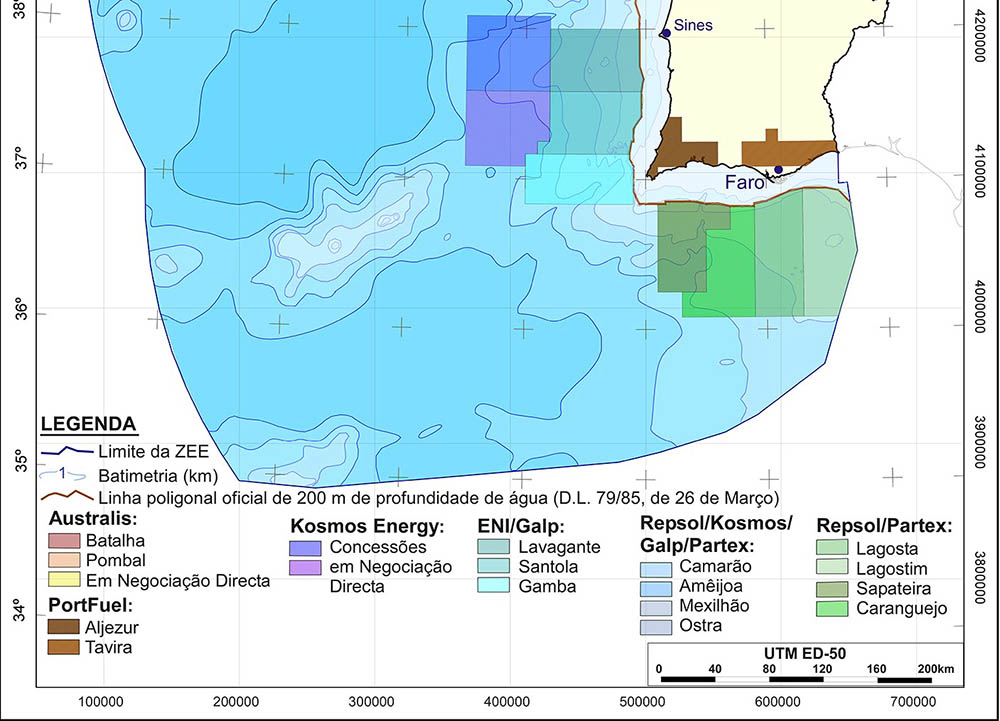 AHP – Associação de Hotelaria de Portugal contests, in a statement, the granting of an oil and gas drilling license to be carried out in the Alentejo basin, which it considers to have a “strong impact not only on the Alentejo coast, but also on what is recognized as the largest destination. national tourist, the Algarve».
AHP – Associação de Hotelaria de Portugal contests, in a statement, the granting of an oil and gas drilling license to be carried out in the Alentejo basin, which it considers to have a “strong impact not only on the Alentejo coast, but also on what is recognized as the largest destination. national tourist, the Algarve».
AHP reveals that "given the gravity of the situation", it issued "an opinion within the very short period granted under the public consultation for granting a research drilling license in the deep offshore from the Alentejo basin». The association of national hoteliers also already has «meetings scheduled both with the Secretary of State for Energy, and with the Secretary of State for Tourism, and will also request a meeting with the utmost urgency with the Minister of Economy».
In its statement, AHP recalls the "strong commitment that has been made in the international promotion of the destination based on sustainability, as a destination for families, Sun and Sea, in addition to the nature and sport tourism segments", as well as such as efforts to find "alternatives to seasonality, working out of high season with other outbound markets and these demanding segments."
All these efforts, considers João Soares, representative of the Algarve region at AHP, can now be called into question if authorized to prospecting for hydrocarbons in the so-called Alentejo basin, 46 kilometers west of Aljezur, by the ENI/Galp consortium.
AHP also invokes the "large investments" that promoters are making in promoting and affirming the Algarve and Alentejo as nature tourism, of which numerous projects, such as cycle tourism, the trekking: surf ou birdwatching, Among others.
“If it becomes a reality, the simple prospecting and exploration of oil will damage the country's image, compromising these public and private efforts and investments”, stresses AHP.
“In the same territory, sustainable tourism and oil exploration cannot cohabit. Therefore, it is necessary to define priorities for the country: the commitment to sustainable tourism, which lives from the excellence of our natural resources and which justifies special protection measures such as the creation of Natural Parks, such as the Natural Park of Southwest Alentejo and Costa Vicentina, is not compatible with prospecting and exploration of oil and gas. In other words, from an economic point of view, there are reasons to stop such exploration/prospecting because it makes another activity of enormous importance for Portugal unfeasible, as is, recognizably, Tourism», stresses Raul Martins, president of AHP.
Furthermore, AHP is not aware of the existence of environmental impact studies, which “allow the assessment of the consequences that oil and gas exploration can have on the region's fauna and on fishing activity – an essential basis of Portuguese cuisine – and others that assess the consequences, for the region, of an environmental catastrophe resulting from a possible accident, not only in terms of direct and immediate damage, but also of the irreparable damage caused to the image of Portugal».
Since Tourism is one of the main economic activities in the Algarve, «stranger becomes the shallow, non-participated and lack of explanations on how this whole process has been managed», also considers the association of national hoteliers.
The president of AHP adds: «the simple association of the brands “Portugal” and “Algarve” with a polluting industry such as oil exploration will be very negative for Tourism, leading to the loss of many millions of euros in revenue that the State has been collecting in taxes at the expense of this sector, along with unemployment, depopulation and consequent abandonment of the region».
“Have these consequences been measured and considered? If so, they were certainly not shared with Tourism or made public», asks the person in charge.


















Comments